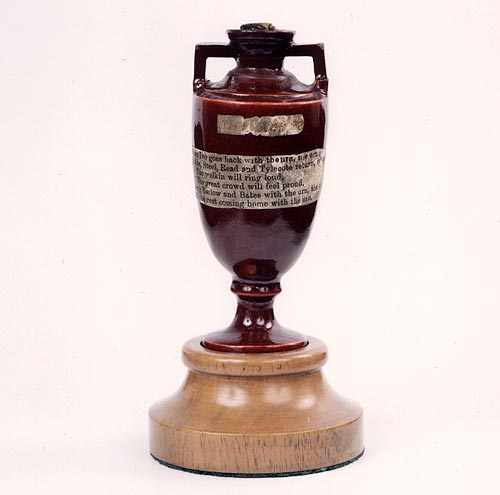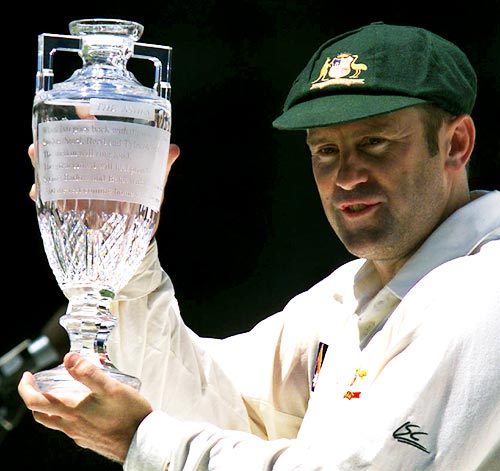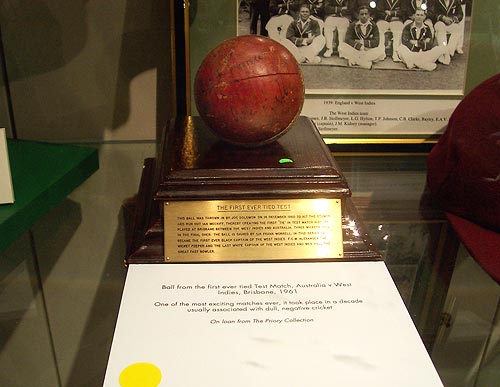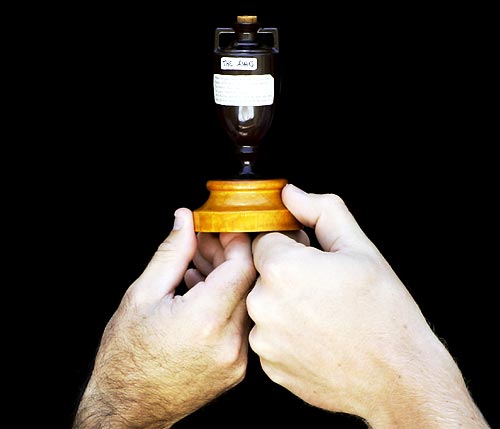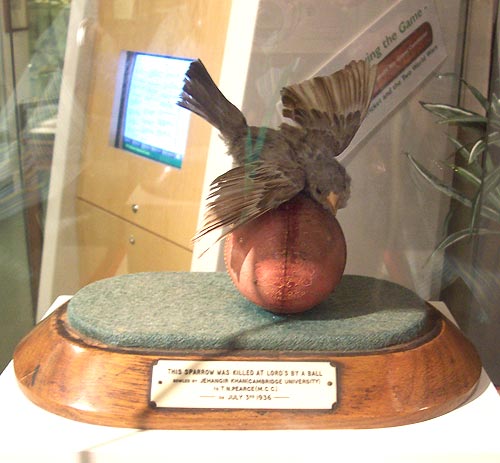 | « Back to article | Print this article |
What's in the Ashes urn?
A tiny terracotta urn at the heart of a 127-year-old rivalry between England and Australia is the main attraction in an exhibition at the home of cricket.
Not even the guardians of the Ashes at the Marylebone Cricket Club (MCC) museum are exactly certain what is in the urn given to England cricket captain Ivo Bligh by his future wife while on a playing tour of Australia in 1883.
What they are sure about is that the brown-coloured urn, slightly bigger than an egg cup, is not the trophy England are attempting to win back from Australia this year in the Test series that is held every two years.
The Ashes urn is not a trophy
Museum manager Antony Amos said that contrary to popular belief the Ashes urn is not a trophy, but a piece of cricketing history donated to the MCC by Bligh's widow.
"People think it's a trophy, but it's not," Amos said. "It's just a symbol."
The museum also holds the much bigger urn-shaped Waterford Crystal trophy, which was commissioned by the MCC as the official Ashes trophy after discussions with the England & Wales Cricket Board (ECB) and Cricket Australia.
That trophy was first presented to Mark Taylor after his Australian side emerged triumphant in the 1998-99 Test series against England.
More cricket treasures in the MCC museum
The 2009 Ashes series began this week in Cardiff, Wales. Lord's -- the home ground of the MCC -- will host the second Test in the five-match series.
While the Ashes urn is the pride of the MCC museum, it shares its home with other hallowed cricket treasures the MCC has been collecting since 1864.
The oldest known cricket ball, busts and portraits of the game's greats, signed bats, caps, clothing and even a stuffed sparrow are on display at Lord's cricket ground in north London, where tours of the museum and ground are available.
The story of the Ashes
The term "Ashes" was first used after England lost to Australia for the first time on home soil in August 1882.
A day later, the Sporting Times carried a mock obituary to English cricket that concluded: "The body will be cremated and the ashes taken to Australia".
The concept caught the imagination of the sporting public and a few weeks later, Bligh and his team set off to tour Australia, vowing to return with "the ashes". His Australian counterpart, WL Murdoch, similarly vowed to defend them.
The bird that was killed by a ball at Lord's
The museum includes the folklore surrounding the urn's contents. Some say the ashes are burned bails while other tales say Bligh's maid had to replace the contents of the urn with ash from his fireplace after an "accident".
Despite the urn, copies of the annual Wisden Cricketers' Almanack carried by British POWs and even the boots of Australian bowler Shane Warne, one of the most popular exhibitions remains the cabinet housing the stuffed sparrow.
The unlucky bird was accidentally killed by bowler Jehangir Khan at Lord's cricket ground in 1936.
"We get kids coming in wanting to see the bird," smiles Amos, gesturing towards the cabinet housing the unlucky sparrow.

© Copyright 2025 Reuters Limited. All rights reserved. Republication or redistribution of Reuters content, including by framing or similar means, is expressly prohibited without the prior written consent of Reuters. Reuters shall not be liable for any errors or delays in the content, or for any actions taken in reliance thereon.
